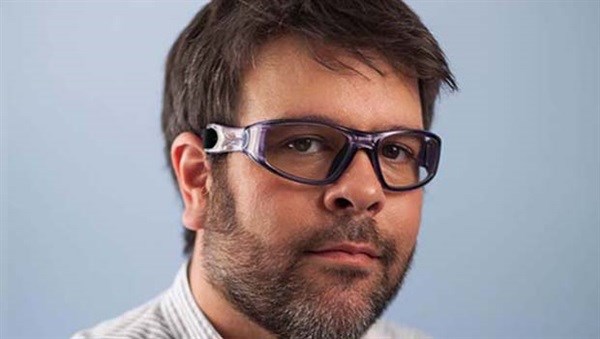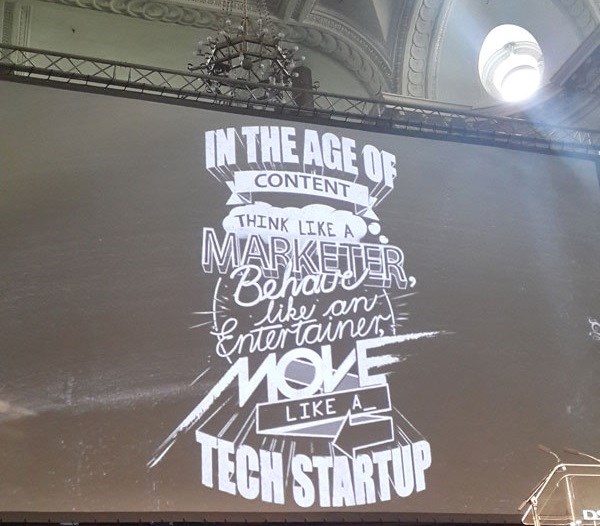Loeries 2014: Less efficiency, more magic - PJ Pereira

As the first speaker for the day, Pereira threw a spanner in the works, bringing into question the current structure of advertising agencies as over the last 20 to 30 years they've been trying to pin down every branch of marketing - from PR and direct marketing to media strategy, from digital to social media. This fragmentation, according to Pereira, has led to more focus on efficiency and less on the magic.
In the not-too-far-distant past, the advertising industry was all about that magic.
"This is why we chose advertising - you wanted to be able one day to arrive home and talk to your wife, your husband, your son, your uncle, your cousin, and say: 'You know that thing that you saw or that you heard about, I did that. It's pretty cool isn't it?!' This is the thing that drove hopefully 80% of this room," said Pereira.
"Then it starts to get more and more specialised. Imagine you coming back home saying: 'You know that part of that part of that part of what you just saw, I did some of it.' You start to find that 'this is not why I joined', and luckily we are getting to a point that consumers and the world in general are telling the industry: 'Hey guys, time to go back to the beginning because this fragmentation - the efficiency doesn't work anymore.'"
With more and more control over the ways in which they access information and entertainment, efficiency is no longer enough in reaching consumers. According to Pereira, the rules have been reset and magic is now much more important again.

Utilising the people and structure within his own agency, he developed a new set of rules that have helped inspire his team to collaborate in new ways that focus on making magic. These new rules culminated in the formula of: "Think like a marketer, behave like an entertainer, move like a tech start-up," - think like a marketer - understand the challenges, the objectives and the goals; behave like an entertainer - please the consumers; and move like a tech start-up - experiment and be ready for the next step, whatever it may be.
Think like a marketer
"There's so much talk about the entertainment of our content and about pleasing consumers and rewarding their time, but, ultimately, if you forget the fact that you have a marketing goal, then you're not going to change anything. The entertainment guys are coming to invade our turf saying: 'I can do advertising as well,' and they can come up with some very beautiful things, some very entertaining content, but they do not have the discipline actually to solve marketing problems. This idea of thinking like a marketer is the one thing that is going to keep us from dying," said Pereira.
He stressed that maintaining marketing discipline is vital, as it is in this area that ad agencies have the upper hand when compared to the competition in other industries. Marketing discipline, said Pereira, means taking one single idea, repeating it and building on it, making it stronger and stronger while still keeping it fresh. "That is the core of our business," says Pereira, "It's the one thing that differentiates us from the amateurs - knowing how to stay focused and still stay fresh."
Pereira used his agency's 1-800 Contacts campaign to exemplify his point on marketing discipline: "If you own that instant and repeat over and over a simple message that will allow you to be remembered at that point, you're going to win the game - that's all you need to know," said Pereira.
The ad campaign can then evolve from using real-life situations, to becoming more playful with the original idea.
Behave like an entertainer
Ads are no longer just competing with other ads for the consumer's attention - it's become a seriously competitive landscape. For this reason agencies need to start thinking like entertainers, said Pereira, and you need to grab their attention within the first few seconds or they'll 'x' you out. But that isn't where it ends - you also have to get them to join/share. This empowerment of the consumer has switched around the way in which marketing used to work; the product/brand can no longer be the subject of the story you're telling, it needs to be a character.
"You need to make the story about something that they care about, and then you find a way to make the product or the brand a character. Make your brand a character in the story and people will remember you; consumers/the audience don't love plot lines, they love characters. You don't love the story of Forrest Gump, you love Forrest Gump," explained Pereira.
"The entertainment guys have known that for ages. We have been just too lazy to admit that and to fight our clients to convince them that that's the only way to do it. The good news now is that there's no other way around, so they have to agree with us."
Pereira used the collaboration by Intel and Toshiba on the Inside Films social film productions: The Experience Inside, The Beauty Inside, and The Power Inside as an example of how the product - in this case a computer - becomes a vital character within each story, but not the subject.
"It's kind of fun to be able to tell two technology companies to buy into these crazy stories and the only reason why they did is because they deeply understand and agree that if they're not a character, they cannot play a role - if they try to be the subject, they're not going to get any attention anymore," explained Pereira.
Move like a tech start-up
Pereira said that if the ad industry wanted to move up in the world, it would mean they would have to start taking risks - that would mean stopping testing ideas to death - and starting to move at the pace of a tech start-up.
"Can we get more moveable and more experimental and start to do things even if we're not sure they're going to work? Even if they don't, we have experience with something," said Pereira.
For a Skype campaign, Pereira and O'Dell worked on the idea of allowing people to stay together throughout their lives using touching real-life stories. They then invited other people to share their own Skype stories: "When I talk about moving like a start-up, what I mean by that is that a lot of times you're going to need to get ready for surprises, sometimes there are going to be horrible surprises that you need to juggle ... sometimes they're going to be wonderful surprises. This is what happened when we asked people to tell their own stories ... "
PJ Pereira is Chief Creative Officer and co-founder of Pereira & O'Dell with 20 years of experience in the technology and advertising industry. He has received more than 60 international awards during the last 10 years and has served as president of juries at Cannes Lions, Eurobest, London International and One Show Festivals.

























